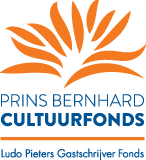Poet
Süreyya Berfe

Süreyya Berfe
(Turkey, 1943)
Biography
For almost 50 years, with great consistency, Süreya Berfe has been writing a poetry of resistance to political disturbance, social dislocation, and emotional crisis. He accomplishes this using all the semantic richness of the Turkish language, without separating feelings and thoughts from the main principle: “Mind is the finest of all senses.” Controversially, Berfe has been reclaimed as a socialist realist poet by many critics since he uses folk songs, folk tales, and real-life scenes from the provinces where he used to be a teacher. However, his desire to maintain a genuine poetic language of his own, and an avoidance of pretension, saves his poetry from sloganeering.Since the military coup in 1980, everything that happens in his motherland and the world has become the subject of his poetry, showing clearly the values to which he attaches importance and with which he stands in solidarity. When he made his way from the metropolis, which he disdained, to nature, this movement was not a request for asylum as many considered it. For the poet, nature was not only nature itself, but also the richness of geography and history. In that richness, he bonded with objects as well as living creatures. The colors and sounds of nature did not allow him to become trapped in a prison of silence.
Born in 1943 in Istanbul, Berfe graduated from Çanakkale High School in 1960. He studied philosophy at the Istanbul University Faculty of Letters and worked in publishing houses and advertising companies in Istanbul for many years. His first poem was published in 1963 in the journal Düzlem. Starting in 1966, he became known for poems in magazines such as Papyrus, Poetry Art, and Abstract. His poem ‘Town’, which won first prize in a competition organized by the Turkish Nationalist Students' Federation, paved his way to fame.
At first, Berfe’s work was influenced by the surrealist and intuitive poetry movement of the Second New, an informal group of second-generation Turkish Modernists . Then he changed his direction due to a rise in the political temperature in the late 1960s and the publication of Nâzım Hikmet’s works for the first time after thirty years of prohibition. While he became a core member of the ’68 generation, he was not directly involved in politics.
Berfe drew attention due to his attempt to grasp and express native Anatolian culture and nature in all its complexity, the traditional roots of folk poetry. Sophisticated implications cased in smooth language, sensual impressions, and the wisdom of self-sufficiency incorporate a critical attitude towards society – the key features of his striking, clear-cut and uncluttered poetry.
© Efe Duyan (Translated by Gökçenur Ç.)
BOOKS in TurkishLet It Be Tomorrow (1969)
Blown Away (1971)
Poetry and Life (1980)
Out of the Horizon (collective poems, 1983)
Poetry Studies (1992)
Of My Soul (1998)
Journeyman (1999)
Selected Poems (2001)
Nâbiga (2001)
I Love You (2002)
Seals Said and I Wrote (2005)
Spinning Wheel (2008)
AWARDS
1966 TMTFK Cultural First Prize
1992 Cemal Süreya Poetry Award
2002 Behçet Necatigil Poetry Award
2002 Orhan Murat Arıburnu Poetry Award
Poems
Poems of Süreyya Berfe
Sponsors





Partners
LantarenVenster – Verhalenhuis Belvédère

